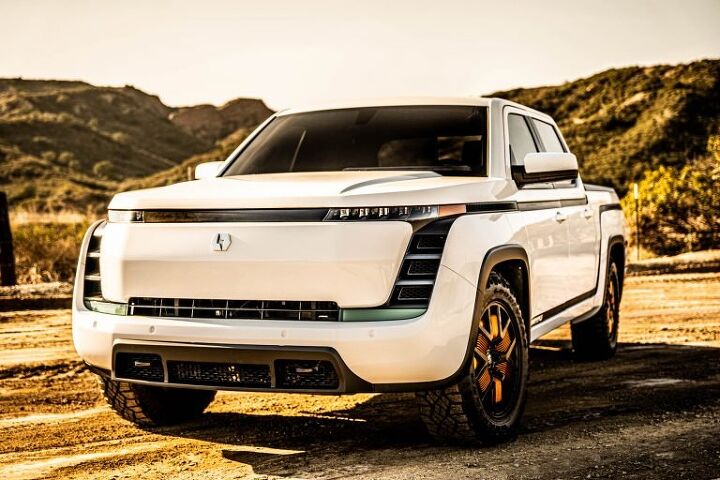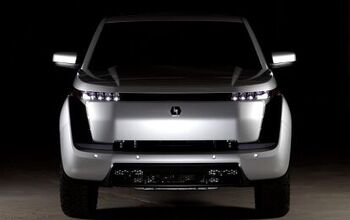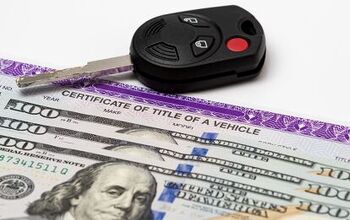Lordstown Motors Appoints New CEO

Lordstown Motors has entered into the phase where an EV startup has to tread water now that everyone knows it failed to disclose various production hurdles and shared inaccurate information about the pre-orders it has been bragging about. The only thing offsetting this bad situation is that our misgivings regarding Lordstown could probably be a little worse. Nikola and Faraday Future told some real whoppers, while the Ohio-based company appeared to have at least one toe dipped in the waters of truth. But we can’t exactly call lying a little less than the competition a major triumph.
It remains a bad situation, particularly because Lordstown lost CEO Steve Burns almost immediately after stating the company was “highly dependent” on his leadership in June. However, the firm said it had remedied the situation by appointing Daniel Ninivaggi as the new chief executive on Friday.
According to the release, Ninivaggi has been approved by the board of directors and will be assuming the position (so to speak) right away. Considering the state the company is currently in, we don’t envy him — at least not until we remember he’s a highly paid corporate executive in an industry that no longer seems interested in accountability or hiring people that seem capable of doing their jobs.
From Lordstown Motors:
Ninivaggi is the former CEO of Icahn Enterprises L.P., a diversified holding company controlled by Carl C. Icahn, and has served in a variety of senior leadership positions in the automotive and transportation industries. He began his automotive career at Lear Corporation, ultimately serving as Executive Vice President, where he was responsible for, among other functions, corporate development and strategy. He later held the positions of Co-Chairman and Co-CEO of Federal Mogul Holdings Corporation, an $8 billion supplier of powertrain, chassis, sealing, brake and other automotive components, prior to its sale to Tenneco.
While with Icahn Enterprises, Ninivaggi also oversaw Icahn Enterprises’ automotive aftermarket service network and parts distribution businesses. Ninivaggi has extensive experience as a director of public companies, including Icahn Enterprises, Motorola Mobility (prior to its sale to Google), Navistar International, Hertz Global Holdings and CVR Energy. He currently serves as the Chairman of the Board of Directors of Garrett Motion Inc. (Nasdaq: GTX), a leading Tier 1 supplier of turbochargers and other propulsion products.
“I believe the demand for full-size electric pickup trucks will be strong and the Endurance truck, with its innovative wheel hub motor design, has the opportunity to capture a meaningful share of the market. With an absolute focus on execution, I look forward to working with the talented Lordstown management team, our suppliers and other partners to bring the Endurance [pickup] to market and maximize the value of our assets,” Ninivaggi stated.
Lordstown’s new CEO also has the predictable ivy league education. He’s a graduate of Stanford University School of Law, the University of Chicago Graduate School of Business, and Columbia University. Does that garmented he’s going to be the chosen one to right the ship? Probably not. But it undoubtedly helped ensure he got the job.
The company ended the hiring announcement with a paragraph about how forward-looking statements aren’t indicative of much and that the qualifying terminology has been issued under the safe harbor provisions of the U.S. Private Securities Litigation Reform Act of 1995.
“Forward-looking statements are statements that are not historical facts,” reads the Lordstown release. “Such forward-looking statements are not guarantees of future performance and are subject to risks and uncertainties, which could cause actual results to differ materially from the forward-looking statements contained herein due to many factors, including, but not limited to: our limited operating history and our significant projected funding needs; our liquidity position and the need to raise substantial additional funding to execute our business plan; risks associated with the conversion and retooling of our facility and ramp up of production; our inability to obtain binding purchase orders from customers and potential customers’ inability to integrate our electric vehicles into their existing fleets; our inability to retain key personnel and to hire additional personnel; competition in the electric pickup truck market; our inability to develop a sales distribution network; and the ability to protect our intellectual property rights.”
It sounds like everything is squared away and we can take it on faith (and only faith) that it’ll be smooth sailing from here on out.
[Image: Lordstown Motors]

A staunch consumer advocate tracking industry trends and regulation. Before joining TTAC, Matt spent a decade working for marketing and research firms based in NYC. Clients included several of the world’s largest automakers, global tire brands, and aftermarket part suppliers. Dissatisfied with the corporate world and resentful of having to wear suits everyday, he pivoted to writing about cars. Since then, that man has become an ardent supporter of the right-to-repair movement, been interviewed on the auto industry by national radio broadcasts, driven more rental cars than anyone ever should, participated in amateur rallying events, and received the requisite minimum training as sanctioned by the SCCA. Handy with a wrench, Matt grew up surrounded by Detroit auto workers and managed to get a pizza delivery job before he was legally eligible. He later found himself driving box trucks through Manhattan, guaranteeing future sympathy for actual truckers. He continues to conduct research pertaining to the automotive sector as an independent contractor and has since moved back to his native Michigan, closer to where the cars are born. A contrarian, Matt claims to prefer understeer — stating that front and all-wheel drive vehicles cater best to his driving style.
More by Matt Posky
Latest Car Reviews
Read moreLatest Product Reviews
Read moreRecent Comments
- W Conrad I'm not afraid of them, but they aren't needed for everyone or everywhere. Long haul and highway driving sure, but in the city, nope.
- Jalop1991 In a manner similar to PHEV being the correct answer, I declare RPVs to be the correct answer here.We're doing it with certain aircraft; why not with cars on the ground, using hardware and tools like Telsa's "FSD" or GM's "SuperCruise" as the base?Take the local Uber driver out of the car, and put him in a professional centralized environment from where he drives me around. The system and the individual car can have awareness as well as gates, but he's responsible for the driving.Put the tech into my car, and let me buy it as needed. I need someone else to drive me home; hit the button and voila, I've hired a driver for the moment. I don't want to drive 11 hours to my vacation spot; hire the remote pilot for that. When I get there, I have my car and he's still at his normal location, piloting cars for other people.The system would allow for driver rest period, like what's required for truckers, so I might end up with multiple people driving me to the coast. I don't care. And they don't have to be physically with me, therefore they can be way cheaper.Charge taxi-type per-mile rates. For long drives, offer per-trip rates. Offer subscriptions, including miles/hours. Whatever.(And for grins, dress the remote pilots all as Johnnie.)Start this out with big rigs. Take the trucker away from the long haul driving, and let him be there for emergencies and the short haul parts of the trip.And in a manner similar to PHEVs being discredited, I fully expect to be razzed for this brilliant idea (not unlike how Alan Kay wasn't recognized until many many years later for his Dynabook vision).
- B-BodyBuick84 Not afraid of AV's as I highly doubt they will ever be %100 viable for our roads. Stop-and-go downtown city or rush hour highway traffic? I can see that, but otherwise there's simply too many variables. Bad weather conditions, faded road lines or markings, reflective surfaces with glare, etc. There's also the issue of cultural norms. About a decade ago there was actually an online test called 'The Morality Machine' one could do online where you were in control of an AV and choose what action to take when a crash was inevitable. I think something like 2.5 million people across the world participated? For example, do you hit and most likely kill the elderly couple strolling across the crosswalk or crash the vehicle into a cement barrier and almost certainly cause the death of the vehicle occupants? What if it's a parent and child? In N. America 98% of people choose to hit the elderly couple and save themselves while in Asia, the exact opposite happened where 98% choose to hit the parent and child. Why? Cultural differences. Asia puts a lot of emphasis on respecting their elderly while N. America has a culture of 'save/ protect the children'. Are these AV's going to respect that culture? Is a VW Jetta or Buick Envision AV going to have different programming depending on whether it's sold in Canada or Taiwan? how's that going to effect legislation and legal battles when a crash inevitibly does happen? These are the true barriers to mass AV adoption, and in the 10 years since that test came out, there has been zero answers or progress on this matter. So no, I'm not afraid of AV's simply because with the exception of a few specific situations, most avenues are going to prove to be a dead-end for automakers.
- Mike Bradley Autonomous cars were developed in Silicon Valley. For new products there, the standard business plan is to put a barely-functioning product on the market right away and wait for the early-adopter customers to find the flaws. That's exactly what's happened. Detroit's plan is pretty much the opposite, but Detroit isn't developing this product. That's why dealers, for instance, haven't been trained in the cars.
- Dartman https://apnews.com/article/artificial-intelligence-fighter-jets-air-force-6a1100c96a73ca9b7f41cbd6a2753fdaAutonomous/Ai is here now. The question is implementation and acceptance.


































Comments
Join the conversation
Nothing says financialized dystopia like triumphantly handing some grand sounding title to a rank yahoo who's been collecting Fed welfare and nothing but, when you don't posses enough competence to put together even an overgrown RC car.... But hey, as long as the Fed can be relied on to reliably rob those less useless for your benefit, why not? It's not called the DembAge for nothing...
The original 1.6L engine put out 68hp, although like all Honda engines of the time it seemed like more because of the great torque curve and sound. I think it was the Road & Track review that called the '76 hatch the greatest bargain in automotive history, at an MSRP of $3995. Compare it to the VW Scirrocco of the time. Honda did a great job of stealing the thunder from the Germans in the early days.